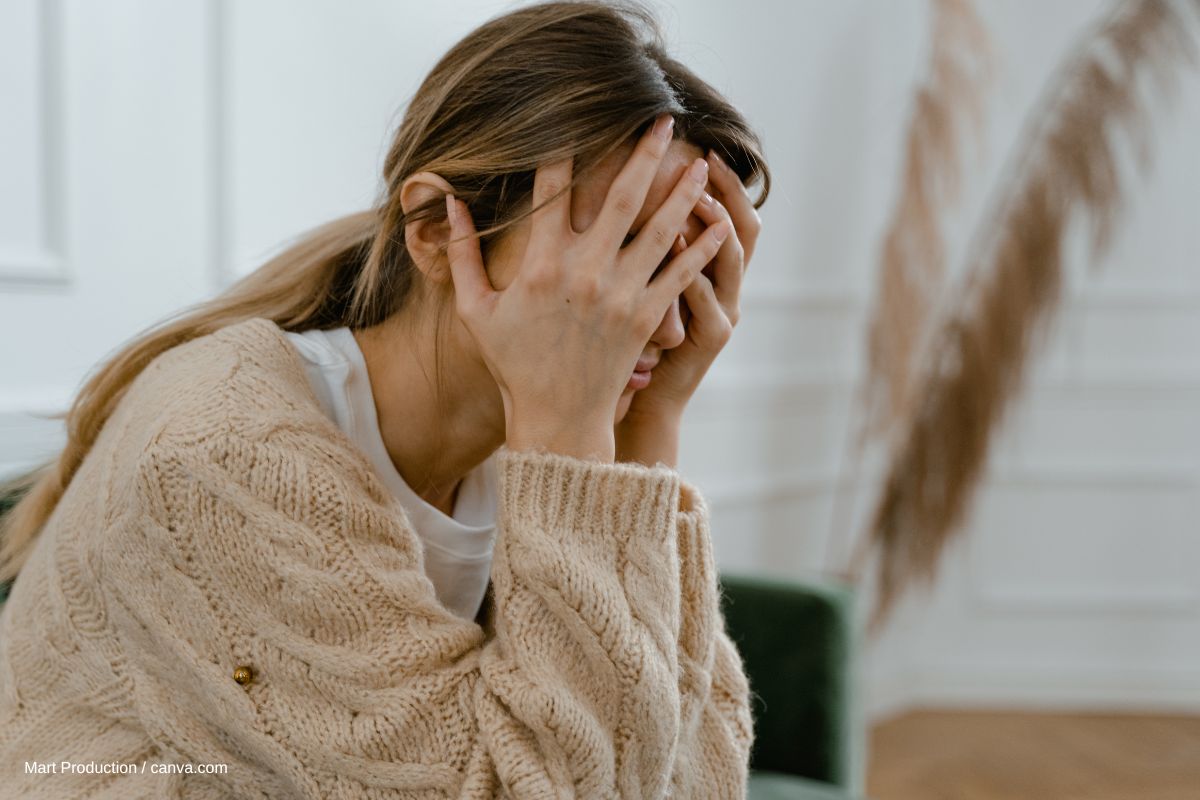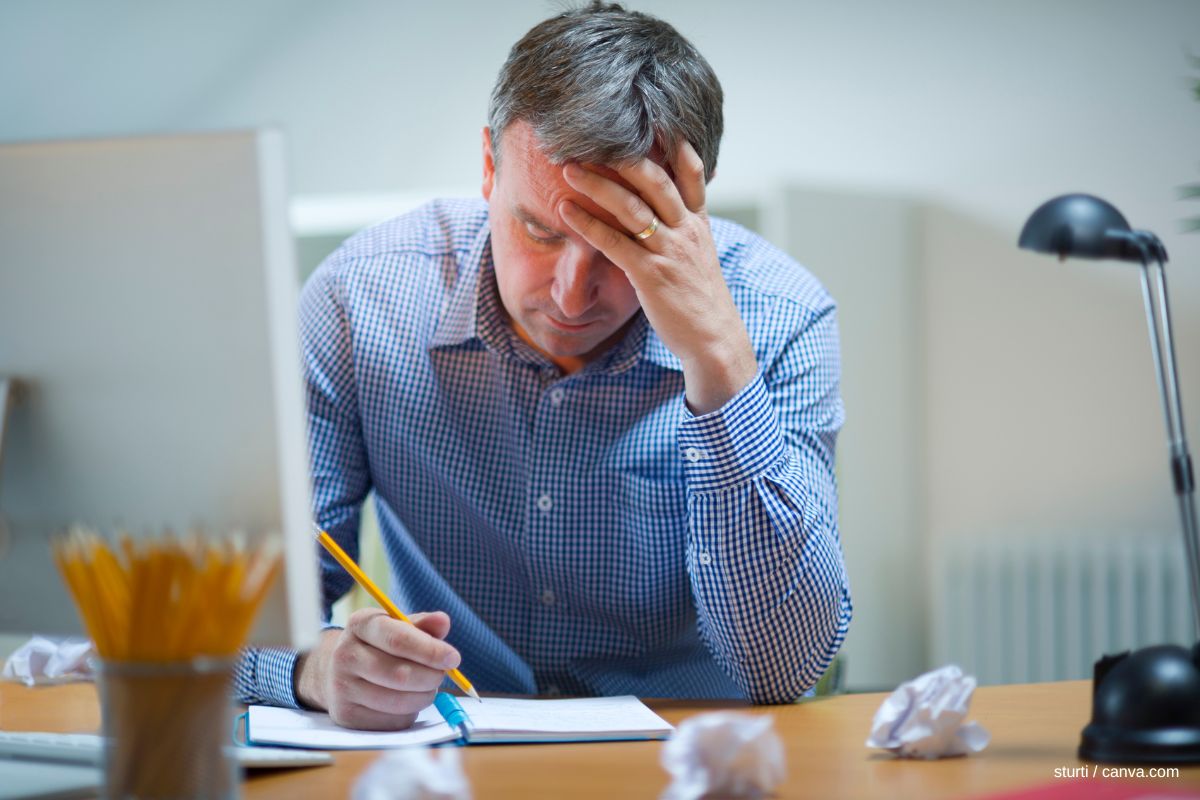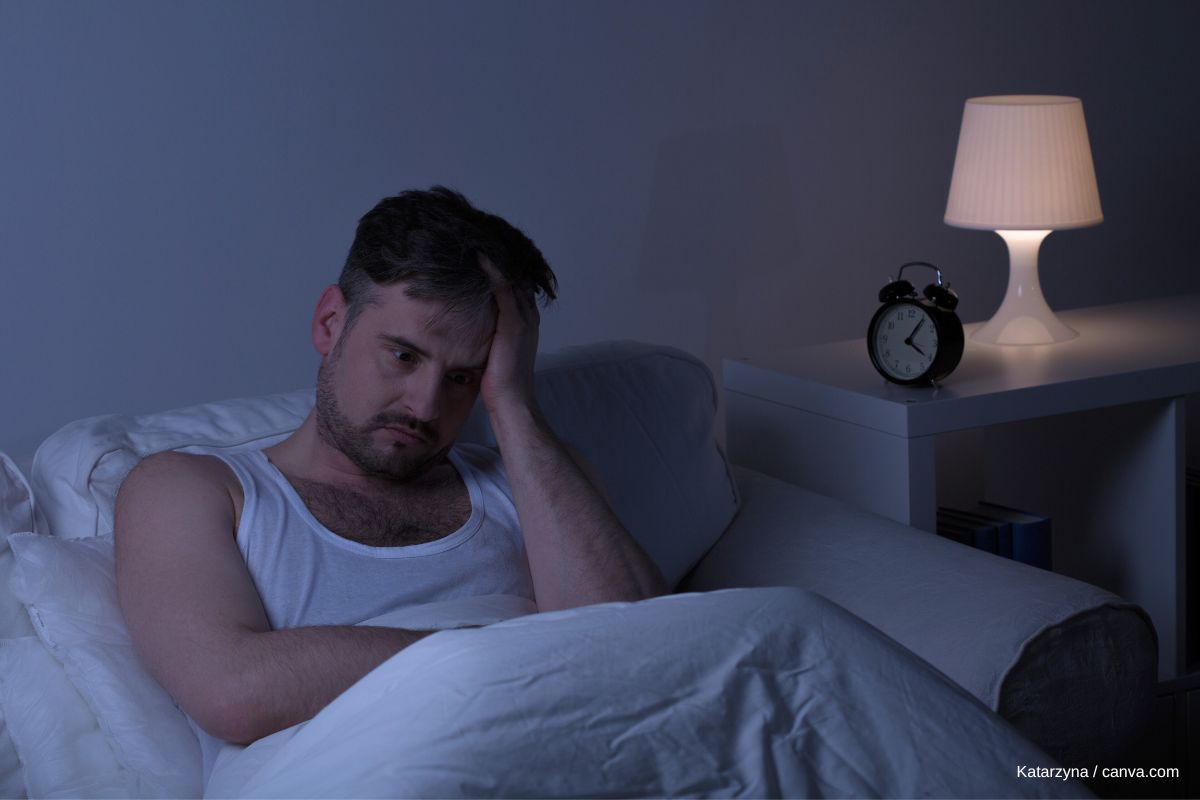The relationship between stress and sleep

Stress and sleep do not make a good pair. In fact, the two are almost mutually exclusive: When you are really stressed, your body releases stress hormones that can prevent you from falling asleep. Surely you have lain awake late at night worrying about something. Find out here what stress does to your body and how you can reduce your inner tension to enjoy a good night's sleep.
Stress and sleep: not a dream team
You've probably noticed this yourself: when you're feeling stressed, sleeping soundly becomes more difficult. Nowadays, many people are caught up in their stressful lifestyle in the evening and lie awake for hours due to their inner tension. Stress-related sleep problems can also manifest themselves as frequently waking up at night. If, on the other hand, you are relaxed, sleep will suddenly come naturally to you. You can fall asleep more easily again and feel well rested in the morning. You will also be ready for any challenges the next day might bring. But why exactly are stress and sleep such a bad match?

What happens to the body under stress
Many people initially experience stress above all mentally. They feel rushed, their thoughts start to spin, and they end up in a funk. However, the state of tension not only has negative effects on the psyche, but also takes place on a physical level. When we are stressed, our body releases various stress hormones such as noradrenaline and cortisol. The hormone cortisol is produced in the adrenal cortex and regulates our sleep and fat metabolism. Cortisol is not bad per se, on the contrary, it makes us resilient and fit when we have a lot to do. Noradrenaline also has a stimulating effect in normal quantities and mobilizes us. After the hormones circulate in our body for a while, they are finally broken down and we calm down again. Problems only arise when our body is chronically under stress and releases too many stress hormones over a longer period of time. This is why chronic stress and sleep are such a bad combination: Instead of winding down in the evening, we remain permanently on high alert.
How does stress affect our sleep?
After a particularly restful night, how did you feel before going to sleep? Chances are that you spent the evening calm and relaxed and went to bed with a feeling of lightness. And it is precisely this sense of letting go that our sleep depends on. Only a soothing state of relaxation allows us to happily drift off into the realm of dreams. Stress and sleep are therefore incompatible, as stress always means a heightened state of tension. Internal tension often manifests itself in night-time ruminations or a negative mental spiral. The stress hormones in our body do the rest, resulting in stress inevitably leading to sleep disorders. Problems falling asleep, difficulties sleeping through the night, and a disturbed circadian rhythm can be the result of too much stress.

The resulting lack of sleep has both psychological and physical effects. After all, restful sleep has an essential function: not only can our body regenerate during sleep, but our psyche also has the opportunity to process the events of the day. Sleep is therefore a very important factor for our physical and mental well-being. The question is: how can you escape the vicious circle of stress and too little sleep so that you can enjoy your life to the fullest again?
How can I sleep better despite stress?
If the stress of everyday life follows you into your bedroom at night, you probably wish you had a solution to enjoy a more relaxed sleep again. Our following tips will show you how to bring stress and sleep back into balance:
- Distraction instead of compulsion: First things first: if you suffer from stress-related sleep problems, you shouldn't force yourself to fall asleep. Constantly looking at the clock will only make it harder for you to fall asleep. If you absolutely cannot fall asleep, it makes more sense to get out of bed and distract yourself with a relaxing activity until you realize that you are getting tired.
- Think long-term: If you haven't slept well all night, it might be tempting to reach for sleeping pills or alcohol. However, both can lead to addiction problems and won't solve your problems long-term. Alcohol also has a negative effect on the quality of your sleep. Even if it makes it easier for you to fall asleep, your sleep remains superficial and you don't get the rest you need.
- Stop the thought spiral: If the biggest manifestation of your stress lies in brooding before falling asleep, this may be due to a lack of thought control. Although you actually want to let go, unwanted thoughts keep intruding. Good news: you are not entirely at the mercy of your thoughts. Practicing techniques such as meditation may help you strengthen your ability to control your thoughts.

- Sufficient exercise: Physical exercise ensures that our body activates endorphins and brings stress hormones such as cortisol back within their natural limits. A relaxing walk outside in fresh air or a calming yoga workout are perfect in the evening. However, it is better to avoid highly strenuous power workouts as they increase the release of stress hormones making it harder for you to sleep.
- Actively tackle problems: Brooding usually hides unresolved problems. By obsessively spinning in our mind, our brain wants to draw our attention to the fact that there is something in our lives that needs to be clarified. Actively become aware of your problems instead of taking them with you to sleep and address the things that are bothering you. By doing so, you won't have anything burning on your mind in the evening and you'll find it easier to relax.
- A relaxing sleep routine: Relaxing sleep rituals before falling asleep will help you to get tired more easily. Try taking a hot bubble bath, make yourself a soothing cup of tea, try reading in bed, or make sure you always go to bed at a fixed time. This will help your body to calm down and get ready for a good night's sleep.
Photo credits:
Mart Production / canva.com
sturti / canva.com
Katarzyna / canva.com
studioroman / canva.com
